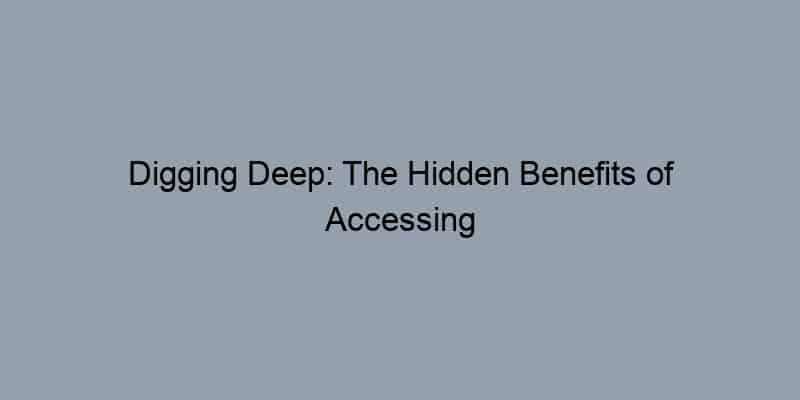When you’re dealing with real estate, be it buying, selling, or even leasing a property, you might come across the term “property records.” You may wonder, “What is a property record and why should I care?” This article will peel back the layers to reveal the many benefits of accessing your property records. Whether you’re a homebuyer, seller, or a real estate professional, understanding these records can save you time, money, and hassle in your property transactions.
What Are Property Records?
Property records are public documents that provide detailed information about a piece of real estate. These records include information about past owners, sale prices, tax assessments, mortgages, and liens. They are typically maintained by local government offices, such as county recorders or assessors. This information is crucial for homeowners, homebuyers, and real estate professionals as it helps in making informed decisions.
Why Are Property Records Important?
-
Verifying Ownership: One of the primary purposes of property records is to verify who owns a property. This is especially helpful in ensuring that the person you’re dealing with is indeed the rightful owner.
-
Understanding Property History: Property records give you a timeline of past sales. Knowing whether a property has changed hands frequently can be a red flag for potential buyers.
-
Checking for Liens: A lien is a legal right or interest that a lender has over a property. If there are outstanding liens, the new owner could end up responsible for paying them off.
-
Evaluating Property Values: By reviewing the sales history and comparing it to similar properties, you might get a better understanding of a property’s current market value.
-
Tax Information: Property records can provide information about property taxes. This is crucial for buyers to understand their potential tax burden.
Why You Need a Comprehensive Property Record
1. Finding Home Values
When considering buying a home, you want to make sure you’re paying a fair price. A comprehensive property record will show you the home’s sales history, which can give insight into whether the asking price is aligned with what the property has sold for in the past. For example, if a house was purchased for $300,000 just two years ago and is now listed for $450,000, it might raise a red flag — unless there have been significant improvements or changes in the neighborhood.
2. Sales History
Understanding the sales history can reveal patterns. For instance, if a property has had multiple owners within a short period, it might indicate issues with the property or the neighborhood. If you see that a home was bought and sold in a very short time frame, this could be a sign of problems that you’d want to investigate further.
3. Tax Records
Property tax information included in property records is essential for buyers. Knowing the property tax amounts can help you budget more accurately for your future expenses. It also helps sellers understand how to price their homes accurately. A property that has been under-assessed could lead to unpleasant surprises for a new homeowner.
4. Mortgages and Liens
If a home has a mortgage or lien against it, the buyer might have to deal with these financial obligations. A comprehensive property record will list any existing liens or mortgages associated with the property. For example, if you’re a buyer and a property has a substantial lien against it, that could affect your decision to make an offer.
5. Homeowner Information
Property records often include information about previous homeowners, which can give insight into the property’s condition and upkeep. If there have been numerous owners, it might suggest a lack of commitment to maintenance, or it could be a sign of a large turnover in a rental market.
Key Information
- What Are Property Records?: Detailed documents about a property, maintained by local government offices.
- Importance: Helps verify ownership, check for liens, understand property values, and know tax obligations.
- Why You Need Them: To find fair home values, investigate sales history, check tax records, and identify financial obligations.
- Who Benefits?: Homebuyers, sellers, real estate agents, and real estate agencies can all gain valuable insights.
FAQs About Property Records
1. How can I access property records?
You can typically access property records through your local county recorder’s office or online databases like OfficialPropertyRecords.org.
2. Are property records public information?
Yes, property records are generally considered public information, meaning anyone can request access to them.
3. What information will I find in a property record?
Property records typically include ownership history, sales prices, tax assessments, mortgages, and any liens on the property.
4. Can I get property records for free?
While some information may be available for free, comprehensive records may come with a fee, especially if accessed through a professional service.
5. Do I need a real estate agent to access property records?
No, you can access property records on your own, but real estate agents are knowledgeable and can help interpret the information more effectively.
Conclusion
In the world of real estate, knowledge is power. By digging deep and accessing comprehensive property records, homeowners and buyers can avoid pitfalls and make informed decisions. Whether you are buying your first home, selling a property, or working as a real estate professional, understanding property records can make a significant difference in your experience.
If you’re looking for a reliable resource for comprehensive property records, consider visiting OfficialPropertyRecords.org. This platform can guide you seamlessly in accessing essential information that will help you navigate your real estate journey with confidence. Don’t let a lack of information hold you back—dig deep and empower yourself with property records today!

